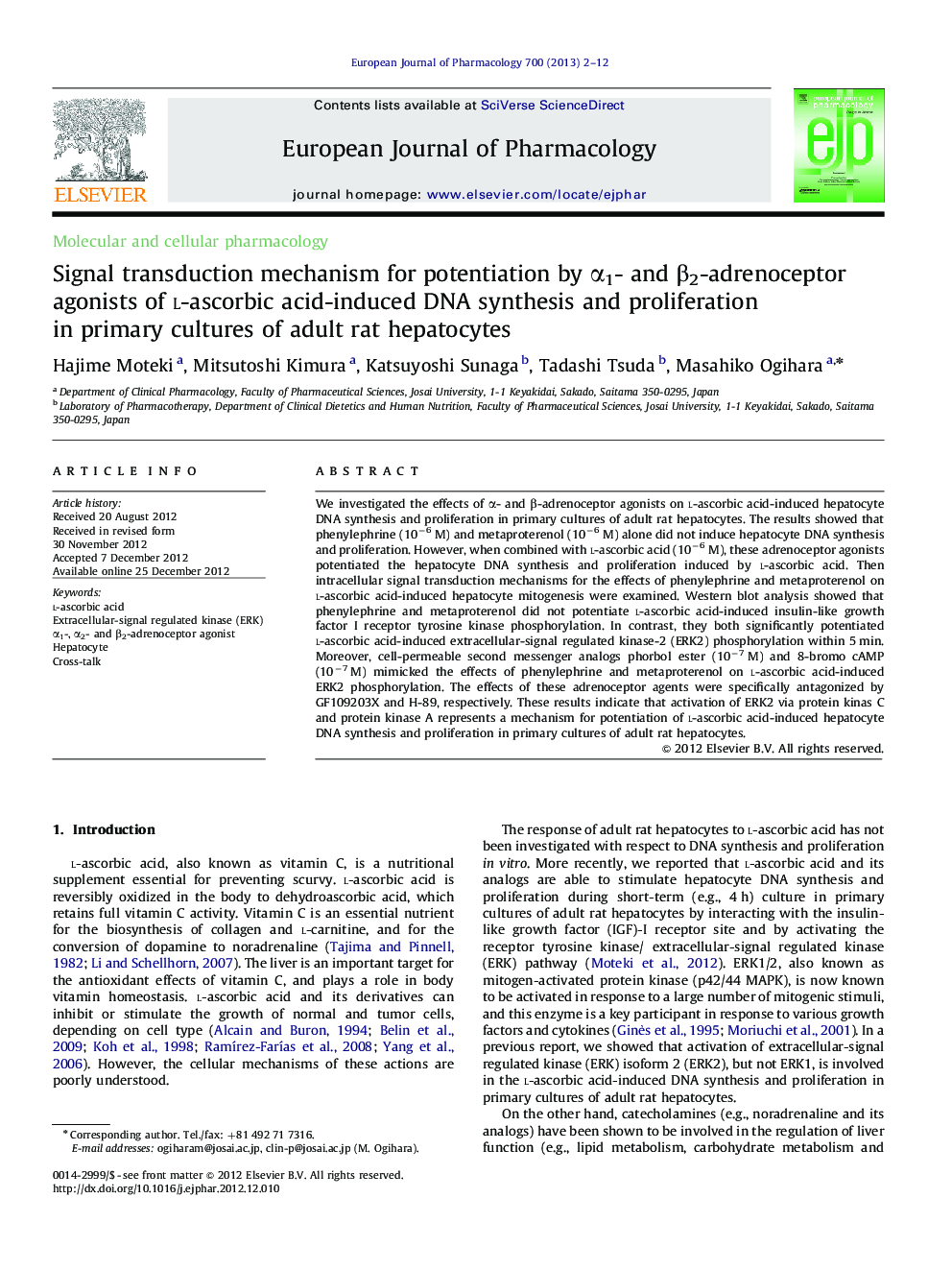| Article ID | Journal | Published Year | Pages | File Type |
|---|---|---|---|---|
| 5828842 | European Journal of Pharmacology | 2013 | 11 Pages |
Abstract
We investigated the effects of α- and β-adrenoceptor agonists on l-ascorbic acid-induced hepatocyte DNA synthesis and proliferation in primary cultures of adult rat hepatocytes. The results showed that phenylephrine (10â6 M) and metaproterenol (10â6 M) alone did not induce hepatocyte DNA synthesis and proliferation. However, when combined with l-ascorbic acid (10â6 M), these adrenoceptor agonists potentiated the hepatocyte DNA synthesis and proliferation induced by l-ascorbic acid. Then intracellular signal transduction mechanisms for the effects of phenylephrine and metaproterenol on l-ascorbic acid-induced hepatocyte mitogenesis were examined. Western blot analysis showed that phenylephrine and metaproterenol did not potentiate l-ascorbic acid-induced insulin-like growth factor I receptor tyrosine kinase phosphorylation. In contrast, they both significantly potentiated l-ascorbic acid-induced extracellular-signal regulated kinase-2 (ERK2) phosphorylation within 5 min. Moreover, cell-permeable second messenger analogs phorbol ester (10â7 M) and 8-bromo cAMP (10â7 M) mimicked the effects of phenylephrine and metaproterenol on l-ascorbic acid-induced ERK2 phosphorylation. The effects of these adrenoceptor agents were specifically antagonized by GF109203X and H-89, respectively. These results indicate that activation of ERK2 via protein kinas C and protein kinase A represents a mechanism for potentiation of l-ascorbic acid-induced hepatocyte DNA synthesis and proliferation in primary cultures of adult rat hepatocytes.
Related Topics
Life Sciences
Neuroscience
Cellular and Molecular Neuroscience
Authors
Hajime Moteki, Mitsutoshi Kimura, Katsuyoshi Sunaga, Tadashi Tsuda, Masahiko Ogihara,
